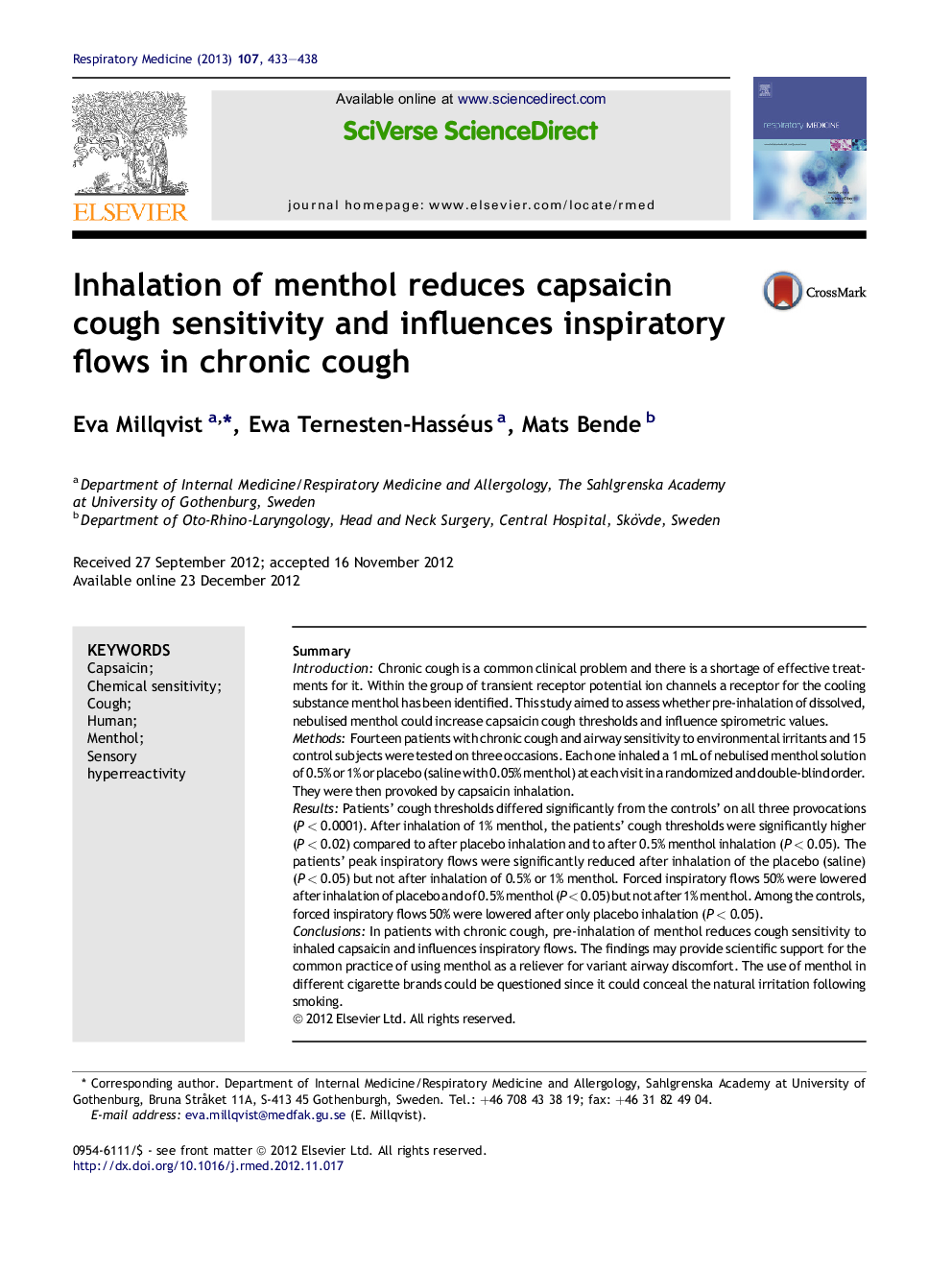| Article ID | Journal | Published Year | Pages | File Type |
|---|---|---|---|---|
| 4210614 | Respiratory Medicine | 2013 | 6 Pages |
SummaryIntroductionChronic cough is a common clinical problem and there is a shortage of effective treatments for it. Within the group of transient receptor potential ion channels a receptor for the cooling substance menthol has been identified. This study aimed to assess whether pre-inhalation of dissolved, nebulised menthol could increase capsaicin cough thresholds and influence spirometric values.MethodsFourteen patients with chronic cough and airway sensitivity to environmental irritants and 15 control subjects were tested on three occasions. Each one inhaled a 1 mL of nebulised menthol solution of 0.5% or 1% or placebo (saline with 0.05% menthol) at each visit in a randomized and double-blind order. They were then provoked by capsaicin inhalation.ResultsPatients' cough thresholds differed significantly from the controls' on all three provocations (P < 0.0001). After inhalation of 1% menthol, the patients' cough thresholds were significantly higher (P < 0.02) compared to after placebo inhalation and to after 0.5% menthol inhalation (P < 0.05). The patients' peak inspiratory flows were significantly reduced after inhalation of the placebo (saline) (P < 0.05) but not after inhalation of 0.5% or 1% menthol. Forced inspiratory flows 50% were lowered after inhalation of placebo and of 0.5% menthol (P < 0.05) but not after 1% menthol. Among the controls, forced inspiratory flows 50% were lowered after only placebo inhalation (P < 0.05).ConclusionsIn patients with chronic cough, pre-inhalation of menthol reduces cough sensitivity to inhaled capsaicin and influences inspiratory flows. The findings may provide scientific support for the common practice of using menthol as a reliever for variant airway discomfort. The use of menthol in different cigarette brands could be questioned since it could conceal the natural irritation following smoking.
